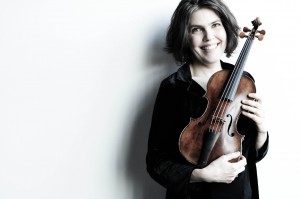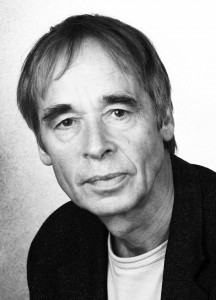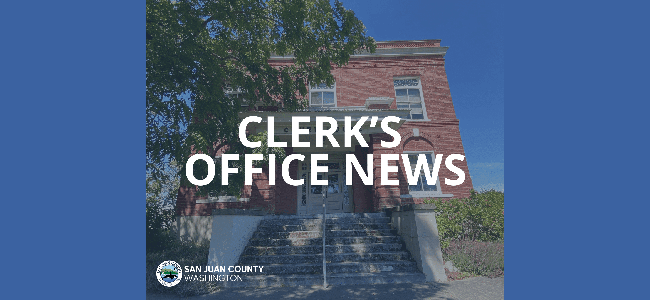The 2011 Salish Sea Early Music Festival presents three internationally known artists in its fourth and final program of early chamber music performed on period instruments on Lopez, Orcas and San Juan Islands next weekend, Saturday April 9 and Sunday, April 10.
Harpsichordist Hans-Jürgen Schnoor from Lübeck, Germany, baroque violinist and leader of the Seattle Baroque Orchestra Ingrid Matthews, and baroque flutist Jeffrey Cohan perform The Musical Offering by J.S. Bach on Lopez Island on Saturday afternoon, April 9 at 1:30 PM at Grace Church, on Orcas Island on Saturday evening, April 9 at 7:30 PM at Odd Fellows Hall in Eastsound, and on San Juan Island on Sunday, April 10 at 2 PM at St. David’s Church in Friday Harbor.
This rare opportunity to hear the entire Musical Offering by Johann Sebastian Bach features one of the greatest works of chamber music of any era, initiated in 1747 when King Frederick II of Prussia, a superb flutist, gave to Bach a theme upon which he improvised to the amazement of all present. Within the next few weeks Bach perfected and presented to Frederick a composition based on the royal theme which included aset of brilliantly clever canons, fugues and an exquisite trio sonata that is without parallel in the trio sonata repertoire. The 6-part fugue is the most significant keyboard work ever written according to musicologist Charles Rosen. All exhibit Bach’s boundless imagination and arresting depth of expression.
The program will also include sonatas by Johann Sebastian Bach for violin and flute.
The suggested donation, a free will offering towards expenses, will be $15 or $20 for all concerts. Youth 18 and under are free. For further information the public is requested to call Grace Church at (360) 468-3477 on Lopez Island, Odd Fellows Hall at (360) 376-5640 on Orcas Island, and St. David’s Church at (360) 378-5360 in Friday Harbor. Please see www.concertspirituel.org for further information.
The Performers
Harpsichordist Hans -Jürgen Schnoor from Lübeck, Germany is one of Germany’s leading early keyboard soloists and conductors of period instrument performances of the instrumental and choral works of Bach and others. He will perform Bach’s Goldberg Variations in Seattle on April 1 and will conduct Bach’s St. Matthew Passion with Orchestra Seattle/Seattle Chamber Singers on Palm Sunday.
He has been cantor and organist at the St. Jakobi Church in Lübeck, and is currently professor for harpsichord, basso continuo, early performance practice and music theory at the Lübeck Conservatory of Music. He directs the Neumünster Bach Choir, Concerto Lübeck and the Hamburg Consort (period instruments) and since 1980 has been Music Director at the Vicelinkirche in Neumünster. He conducts and is a member of various ensembles in Eastern Europe. Mr. Schnoor has won numerous awards, and has been a faculty member at the Church Music College of Westfalia. He was born in Kiel, and studied piano with Edmund Schmid, organ with Walter Kraft, and conducting with Wilhelm Ehmann and Kurt Thomas. He has made many solo recordings as conductor, organist, harpsichordist and fortepianist, including the music of Weckmann, Bruhns, and much of the organ and harpsichord repertoire of J.S. Bach. He frequently performs solo organist and harpsichordist and fortepianist.

Ingrid Matthews will perform at the Salish Sea Early Music Concerts in the San Juan Islands next weekednd
Violinist Ingrid Matthews is the Music Director of Seattle Baroque, and one of today’s most respected baroque violinists. She won first prize in the Erwin Bodky International Competition for Early Music in 1989, and performed extensively with numerous leading period-instrument ensembles, including Tafelmusik, Philharmonia Baroque Orchestra, and Joshua Rifkin’s Bach Ensemble, before founding Seattle Baroque in 1994 with harpsichordist Byron Schenkman.
In addition she serves as concertmaster for the New York Collegium, under the direction of Andrew Parrott, and has held the same position for the prestigious Boston Early Music Festival Orchestra. Matthews has won international critical acclaim for her extensive discography as a soloist, which ranges from the early seventeenth-century Italian repertoire to the complete Sonatas and Partitas for unaccompanied violin of J. S. Bach. Of the latter recording the American Record Guide writes “this superb recording is my top recommendation for this music… on either modern or period instruments.”
Ingrid Matthews has served on the faculties of the University of Toronto, the University of Washington, Indiana University, Amherst Early Music, the International Baroque Institute at Longy and the University of Southern California in Los Angeles, and is currently on the faculty of Cornish College of the Arts in Seattle. Matthews is a graduate of Indiana University, where she studied with Josef Gingold and Stanley Ritchie.
Flutist Jeffrey Cohan has performed as soloist in 25 countries, most recently Ukraine, Slovenia and Germany, on all transverse flutes from the Renaissance through the present, and has won the Erwin Bodky Award (Boston) and the top prize in the Flanders Festival International Concours Musica Antiqua (Brugge, Belgium), two of the most important prizes for period instrument performance in America and Europe.
He has premiered many concerti and other works by Slovenian and American composers. He directs the Capitol Hill Chamber Music Festival in Washington, DC, the Black Hawk Chamber Music Festival in Illinois and Iowa and the Salish Sea Early Music Festival. He can “play many superstar flutists one might name under the table” according to the New York Times, and is “The Flute Master” according to the Boston Globe.
The Salish Sea Early Music Festival presents period instrument performances of chamber music on Lopez, Orcas and San Juan Islands, featuring some of the finest period instrument performers from the Northwest and the USA, Canada and Germany along with artistic director and flutist Jeffrey Cohan. Chamber music by familiar as well as little-known composers from the Renaissance through the present is heard in period instrument performances which shed new light upon early performance practice. Unpublished works from the Library of Congress and other libraries and unusual instruments and instrumental combinations that were familiar in earlier times are to be given particular attention.
**If you are reading theOrcasonian for free, thank your fellow islanders. If you would like to support theOrcasonian CLICK HERE to set your modestly-priced, voluntary subscription. Otherwise, no worries; we’re happy to share with you.**







